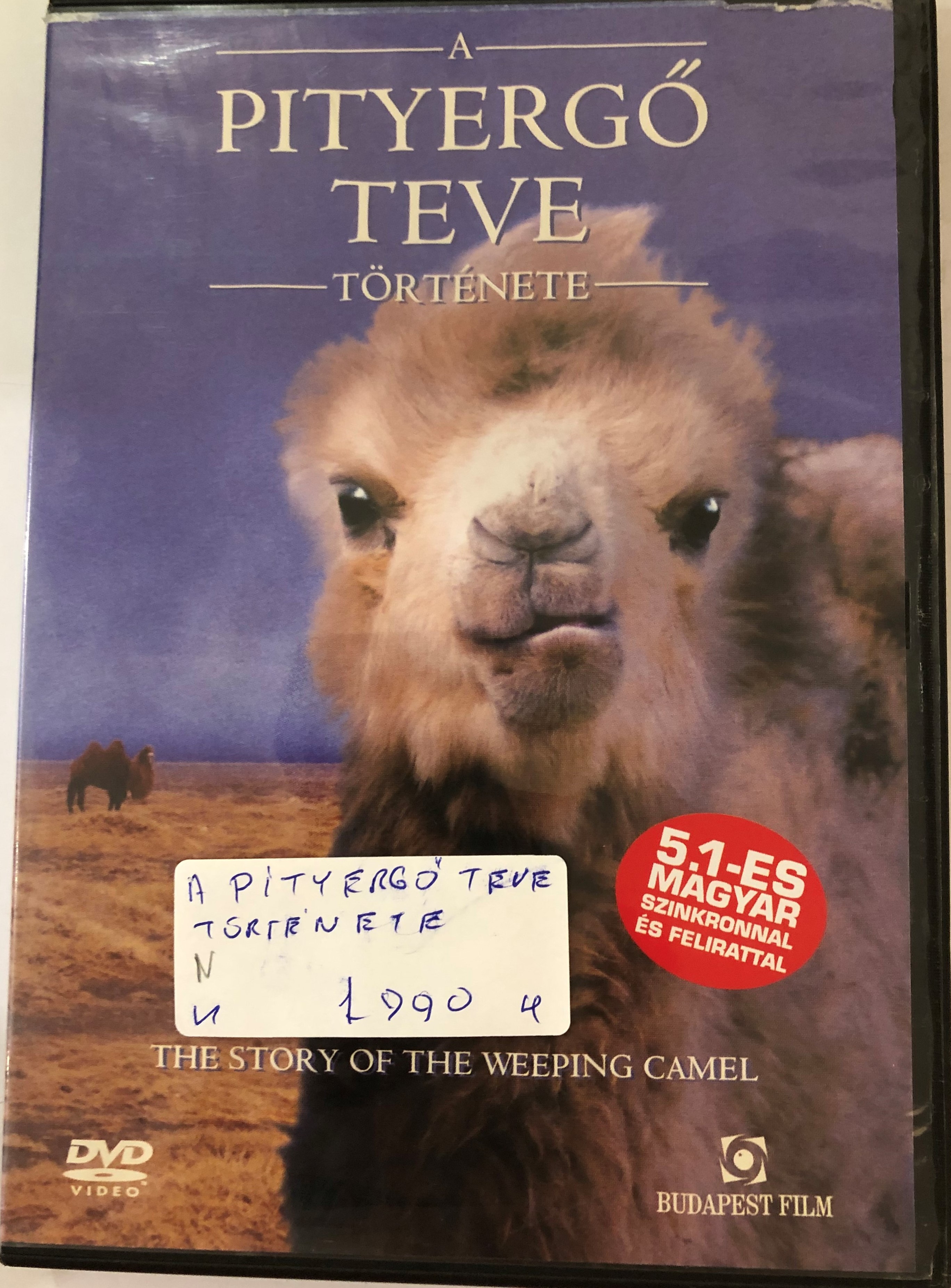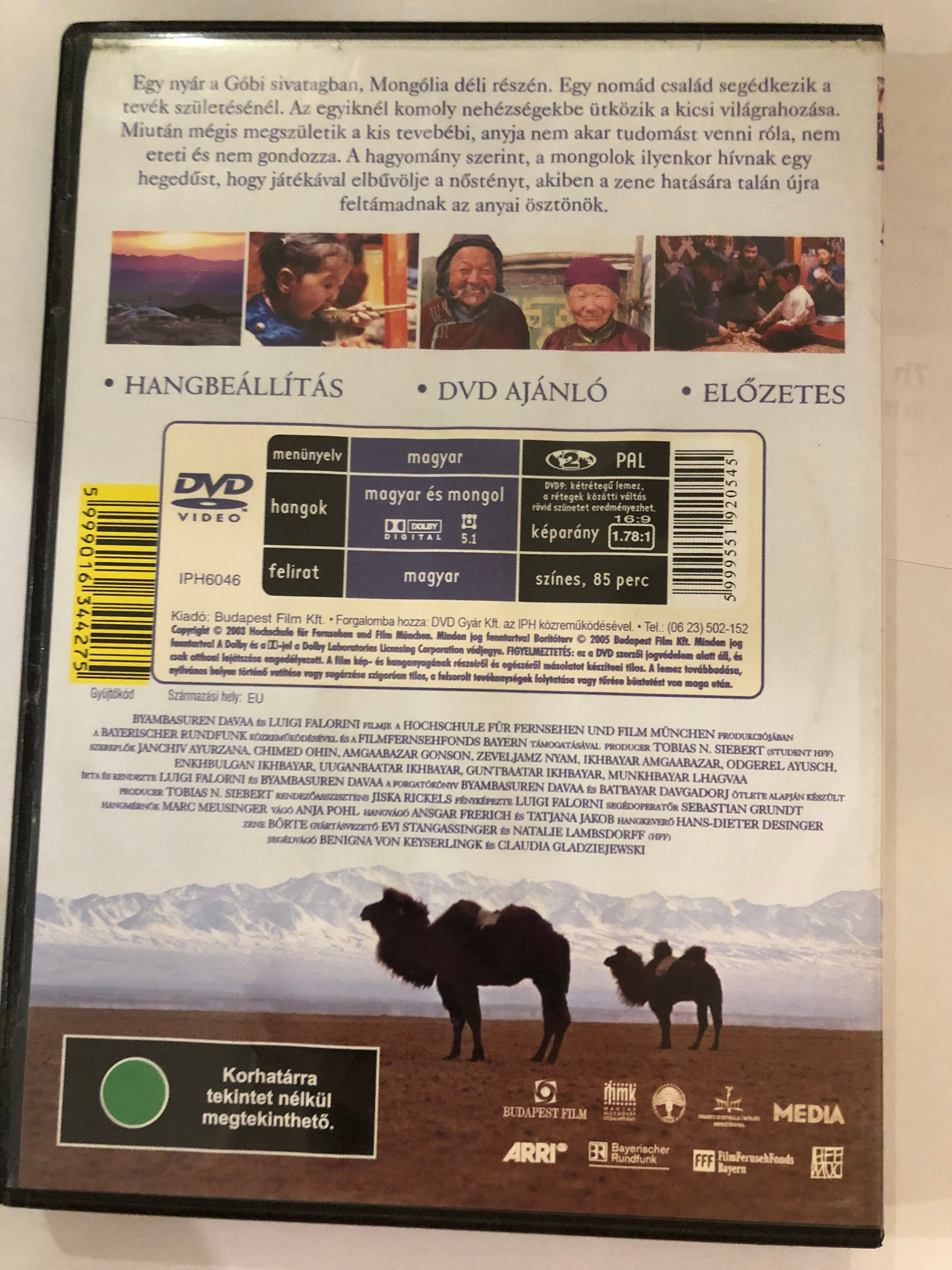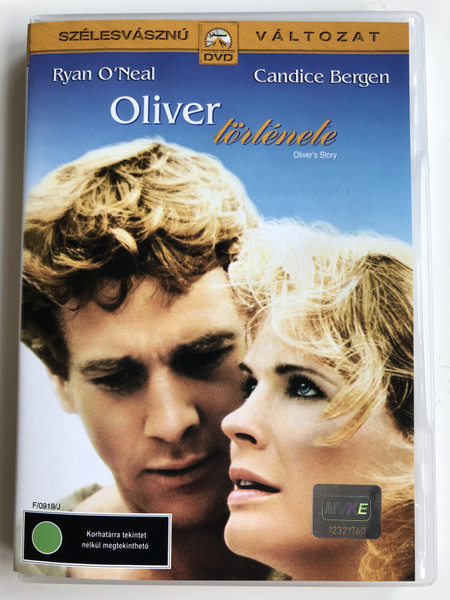Description
The Story of the Weeping Camel DVD 2003 A Pityergő Teve története / Directed by Luigi Falorni / Starring: Janchiv Ayurzana, Chimed Ohin, Amgaabazar Gonson, Zeveljamz Nyam / AKA Ингэн нулимс, Ingen nulims
UPC 5999551920545
REGION 2 PAL DVD
MADE IN HUNGARY
AUDIO: Mongolian 5.1, Hungarian 5.1
SUBTITLES: Hungarian
Total Runtime: 85 MINUTES
CONDITION IS USED - VERY GOOD!
English Summary:
During Spring, a family of nomadic shepherds assists the births of their camel herd. The last camel to calve this season has a protracted labor that persists for two days. With the assistance and intervention of the family, a rare white calf is born. This is the mother camel's first calving. Despite the efforts of the shepherds, the mother rejects the newborn, refusing it her milk and failing to establish a care-bond with it.
To restore harmony between the mother and calf, the nomadic family call upon the services of a group of lamas who perform a ritual with bread or dough 'effigies' (Standard Tibetan: torma) of the mother, the calf and the individual members of the family. The rite opens with the sound of a sacred conchshell horn followed by bells in the hands of lamas, some of whom wield vajra. The rite takes place with members of the extended nomadic community and a number of lama at a sacred place that consists of one end of a log, or wooden pole, set in the earth, with the other end raised to the sky: a stylized 'victory banner' (Sanskrit: Dhvaja) with a piece of blue fabric entwined around it, functioning as a prayer flag (darchor-style). The log is supported by a cairn of rocks at its base as foundation. The ritual, however, does not re-establish harmony between the mother and calf.
The family then resolve to secure the services of an indigenous 'violinist' to play the music for a Mongolian 'Hoos' ritual. They send their two young boys on a journey through the desert to the community marketplace to locate a musician. The 'violinist' —who plays more precisely a morin khuur — is summoned to the camp and a ritual of folk music and chanting is enacted. The musician first drapes the morin khuur on the first hump of the camel to establish a sympathetic magical linkage between the mother and the state of harmony represented by the instrument. Once this is done he removes the instrument and commences playing. As the musician sounds the Mongolian 'violin', the female family member who lulled her child to sleep with a lullaby earlier in the documentary, repeatedly intones the calming sounds and beautiful melody of the 'hoos'. At this point, the mother camel starts to weep, tears visibly streaming from her eyes. Immediately after the rite the mother and calf are reconciled and the calf draws milk from her teat.
Hungarian Summary:
A film elsősorban a mongóliai nomádok életét mutatja be, bizonyos részekben azonban fény derül az ulánbátori városlakók életének körülményeire is, ami a rendszerváltás utáni változásokat láttatja. Mongóliában a népesség fele ma már városokban él, ahol a globalizáció hatásai - előnyök és hátrányok - egyre nyilvánvalóbbak.
Cast / Szereplők:
| Directed by | Byambasuren Davaa Luigi Falorni |
|---|---|
| Produced by | Tobias Siebert |
| Written by | Byambasuren Davaa Luigi Falorni |
| Starring | Janchiv Ayurzana Chimed Ohin |
| Music by | Marcel Leniz Marc Riedinger Choigiw Sangidorj |
| Cinematography | Luigi Falorni |
| Edited by | Anja Pohl |
|
Production
company |
Mongolkina
|
| Distributed by | Prokino Filmverlieh (Germany) New Yorker Films ThinkFilm (US) |
|
Release date
|
|
|
Running time
|
85 minutes |
| Country | Germany Mongolia |
| Language | Mongolian |













